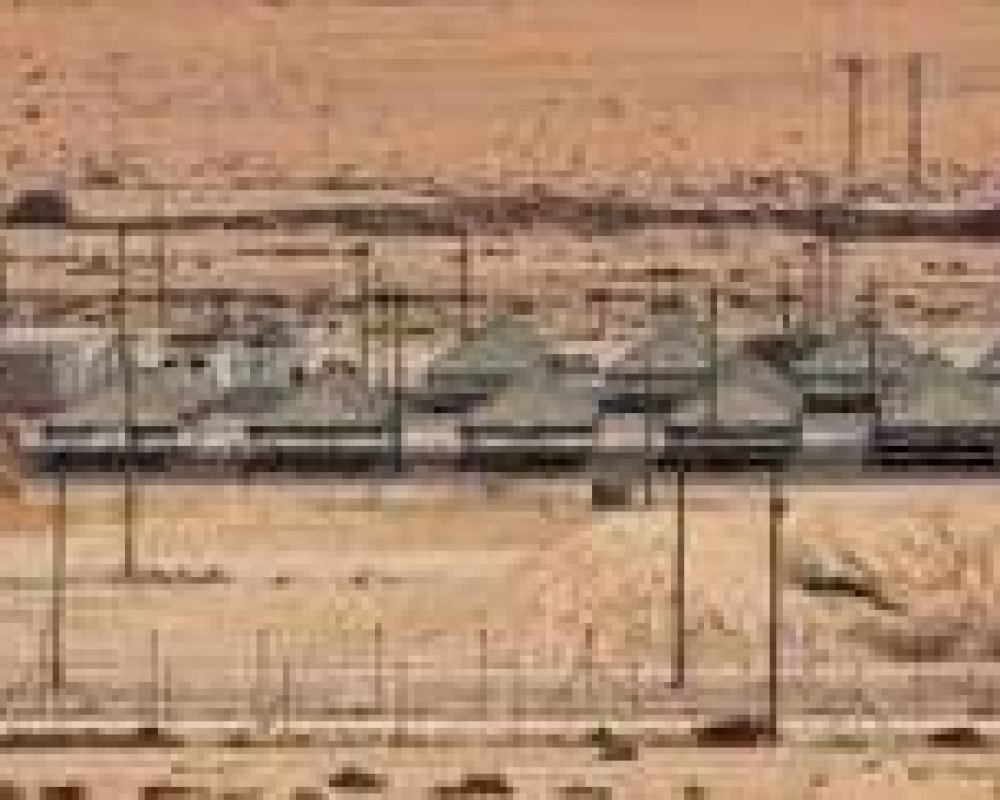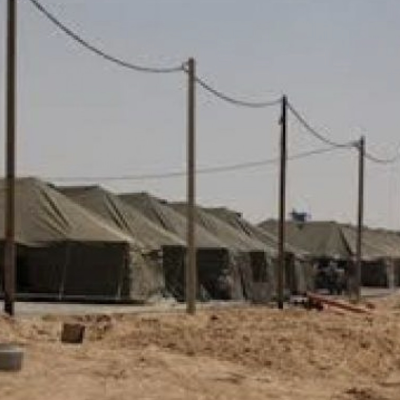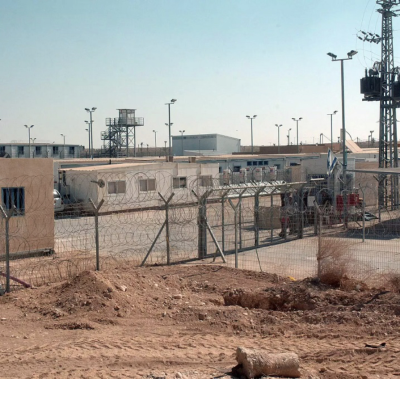
Bethlehem/PNN / Najeb Farraj report
In a shocking statement , recently released Palestinian ex-detainee, Mahand Al-Haj Al-Azza, unveils the horrendous conditions faced by Palestinian prisoners in Israeli jails, which he worsened significantly following the recent conflict.
Al-Azza, hailing from Al-Azza Refugee Camp north of Bethlehem, describes conditions resembling the notorious Abu Ghraib prison in Iraq, which came under scrutiny for severe mistreatment and torture of detainees during the U.S. occupation.
Released from Israeli custody in late October after serving a 13-year sentence, Al-Azza divulged that the situation for Palestinian prisoners became notably more violent and sadistic post-Gaza conflict. He recounted his personal ordeal, where he and fellow detainees were subjected to unprecedented brutality.

The former detainee mentioned daily raids by Israeli forces within the Negev Desert's prisons.
During these incursions, soldiers brandished their weapons within prison blocks, a highly irregular practice as Israeli law typically prohibits carrying firearms when interacting with detainees.
Simultaneously, he recounted instances of verbal threats, derogatory language, and physical beatings, with a disturbing incident involving detainee Muhammad Al-Saifi from Dheisheh Camp who was savagely beaten to unconsciousness.
Furthermore, Al-Azza described a disconcerting ritual prisoners had to undergo when moving through a corridor approximately 100 meters long, leading to the prison's administration area. Prison guards forced them to disrobe, including their underwear, while their clothes were confiscated, forcing the detainees to walk naked, reminiscent of their birth. This humiliating practice is now a common occurrence for all prisoners.
These accounts led Al-Azza to draw a grim parallel between current prison conditions and the infamous Abu Ghraib prison, a statement emphasizing that Israel has mastered the art of torture and abuse, learning from its tutor, the United States.

Al-Azza warned that the grave situation inside the prisons should serve as a red alert to the global community, human rights organizations, and especially the Palestinian public.
He also emphasized the dire need to prevent the recurrence of the tragic deaths of Omar Daghma and Arafat Hamdan, who succumbed to brutal beatings in custody, signaling even graver dangers in the future.